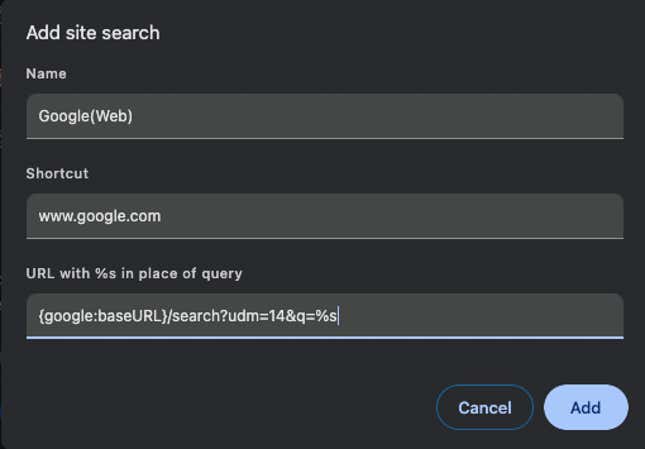Can Google Still Train Its Search AI After Website Opt-Out?

Table of Contents
How Google Trains its Search AI
Google's search AI is a complex system trained on massive datasets. Understanding this process is crucial to grasping the implications of website opt-outs on Google Search AI training. The training process involves a multi-faceted approach utilizing various data sources:
-
Web Crawling: Google's web crawlers constantly scan the internet, indexing billions of web pages. This provides a foundational dataset for understanding the structure and content of the web. The quality and relevance of this crawled data directly influence the accuracy and effectiveness of Google's AI models.
-
User Search Data: Google analyzes user search queries, clicks, and other interactions to understand user intent and preferences. This data is invaluable in refining search algorithms and personalizing search results. It helps Google understand which results best satisfy user needs, shaping future Google Search AI training.
-
Google's Own Data Centers: Google possesses vast internal data, including data from its various services like Google Maps, YouTube, and Google Books. This internal data complements publicly available information, enriching the training data for its AI.
-
Publicly Available Datasets: Google also leverages publicly available datasets to enhance its AI models. These datasets provide valuable context and information that augment data collected through web crawling and user interactions.
The role of website content in this process is undeniable. High-quality, relevant content is crucial for effective Google Search AI training. Without access to this content, Google's understanding of specific topics and subjects can be significantly impaired. This impacts various AI models, including:
-
Ranking Algorithms: These algorithms determine the order in which search results are displayed, relying heavily on the quality and relevance of website content.
-
Search Suggestions: The accuracy and helpfulness of suggested search terms depend heavily on the data used for Google Search AI training.
-
Featured Snippets: The selection of featured snippets relies on identifying high-quality content that directly answers user queries, making website content pivotal for this feature.
The Mechanics of Website Opt-Outs
Website owners can employ several methods to restrict Google's access to their data:
-
robots.txt: This file allows website owners to instruct Google's crawlers which parts of their site not to index. However, this is not a foolproof method, as Google may still access publicly visible links or information.
-
noindextags: These meta tags instruct search engines not to index specific pages. Again, this doesn't completely prevent Google from accessing information, as they may still use data from other sources. -
Removal Requests: Website owners can request the removal of specific URLs from Google's index. This process, however, might not be entirely effective in preventing the use of previously indexed data for Google Search AI training.
Despite these methods, Google might still gather information through:
-
Cached Copies: Google maintains cached copies of web pages, potentially retaining data even after opt-out requests.
-
Backlinks: Links from other websites to the opted-out site can still provide Google with indirect information about the content.
-
Data Shadows: Even with opt-outs, Google may collect indirect data about a website through other sources like social media mentions or news articles. This "data shadow" can significantly impact Google's ability to maintain a complete picture, potentially impacting Google Search AI training.
Widespread opt-outs could significantly impact Google's algorithm, forcing adaptations and potentially altering the search landscape.
Alternative Data Sources for Google's Search AI
If website data becomes limited due to widespread opt-outs, Google could leverage alternative sources:
-
Public Datasets: Government data, academic research, and other publicly accessible datasets could supplement the lack of website data. However, this data may not always be comprehensive or up-to-date, impacting Google Search AI training.
-
User Interactions: Google could place greater emphasis on user search behavior and clicks to understand user intent. This shift may lead to more personalized results but could also introduce biases based on user demographics.
-
Google's Internal Data: Google's internal data sources could become more central to the training process. This reliance, however, could lead to a less diverse and representative dataset.
-
Other Search Engines' Data: While ethically questionable, Google could potentially utilize data from other search engines. This is a scenario fraught with legal and ethical challenges.
The quality and potential biases inherent in these alternative sources are substantial concerns. Relying on less comprehensive or biased data could affect search result accuracy and fairness.
The Long-Term Implications of Website Opt-Outs on Google Search
Significant website opt-outs could lead to:
-
Reduced Search Quality: Less comprehensive data could result in less accurate and relevant search results, impacting user experience.
-
Algorithm Adaptations: Google might adapt its algorithms to rely more heavily on alternative data sources, leading to changes in how search results are ranked and presented.
-
Ethical and Legal Challenges: The ethical and legal implications of data collection practices and website opt-outs are increasingly important considerations, demanding greater transparency and user control.
-
Future Scenarios: Future privacy regulations and technological advancements could further shape the landscape of data collection and the training of AI algorithms.
Conclusion: The Future of Google Search AI Training and Website Control
Google can still train its Search AI even after website opt-outs; however, the quality and comprehensiveness of the training data will likely be affected. Understanding the limitations of opt-out mechanisms is crucial. Website owners need to carefully consider their data privacy strategies while recognizing the impact on Google Search AI training. To learn more about managing your website’s data in relation to Google Search AI training, research best practices for optimizing your website for Google Search AI training and understanding Google's Search AI data usage. Proactive management of data privacy is key to navigating the evolving landscape of search engine optimization and AI.

Featured Posts
-
 Nhl First Round Matchups Predictions And Analysis
May 04, 2025
Nhl First Round Matchups Predictions And Analysis
May 04, 2025 -
 White House Meeting Mark Carney And Trump To Discuss Key Issues
May 04, 2025
White House Meeting Mark Carney And Trump To Discuss Key Issues
May 04, 2025 -
 Marvel Cinematic Universe A Necessary Course Correction
May 04, 2025
Marvel Cinematic Universe A Necessary Course Correction
May 04, 2025 -
 Formula Ones Explosive Growth The Role Of Ceo Stefano Domenicali
May 04, 2025
Formula Ones Explosive Growth The Role Of Ceo Stefano Domenicali
May 04, 2025 -
 Leaked Texts Detail Explosive Row Between Nigel Farage And Rupert Lowe
May 04, 2025
Leaked Texts Detail Explosive Row Between Nigel Farage And Rupert Lowe
May 04, 2025
Latest Posts
-
 Finding Affordable Lizzo Concert Tickets Your Guide To The In Real Life Tour
May 04, 2025
Finding Affordable Lizzo Concert Tickets Your Guide To The In Real Life Tour
May 04, 2025 -
 Lizzo In Real Life Tour Ticket Prices A Comprehensive Guide
May 04, 2025
Lizzo In Real Life Tour Ticket Prices A Comprehensive Guide
May 04, 2025 -
 How Much Do Lizzo Concert Tickets Cost A Guide To Her In Real Life Tour Prices
May 04, 2025
How Much Do Lizzo Concert Tickets Cost A Guide To Her In Real Life Tour Prices
May 04, 2025 -
 Las Vegas Golden Knights Prime Position For Stanley Cup Success
May 04, 2025
Las Vegas Golden Knights Prime Position For Stanley Cup Success
May 04, 2025 -
 Nhl First Round Matchups Predictions And Analysis
May 04, 2025
Nhl First Round Matchups Predictions And Analysis
May 04, 2025
